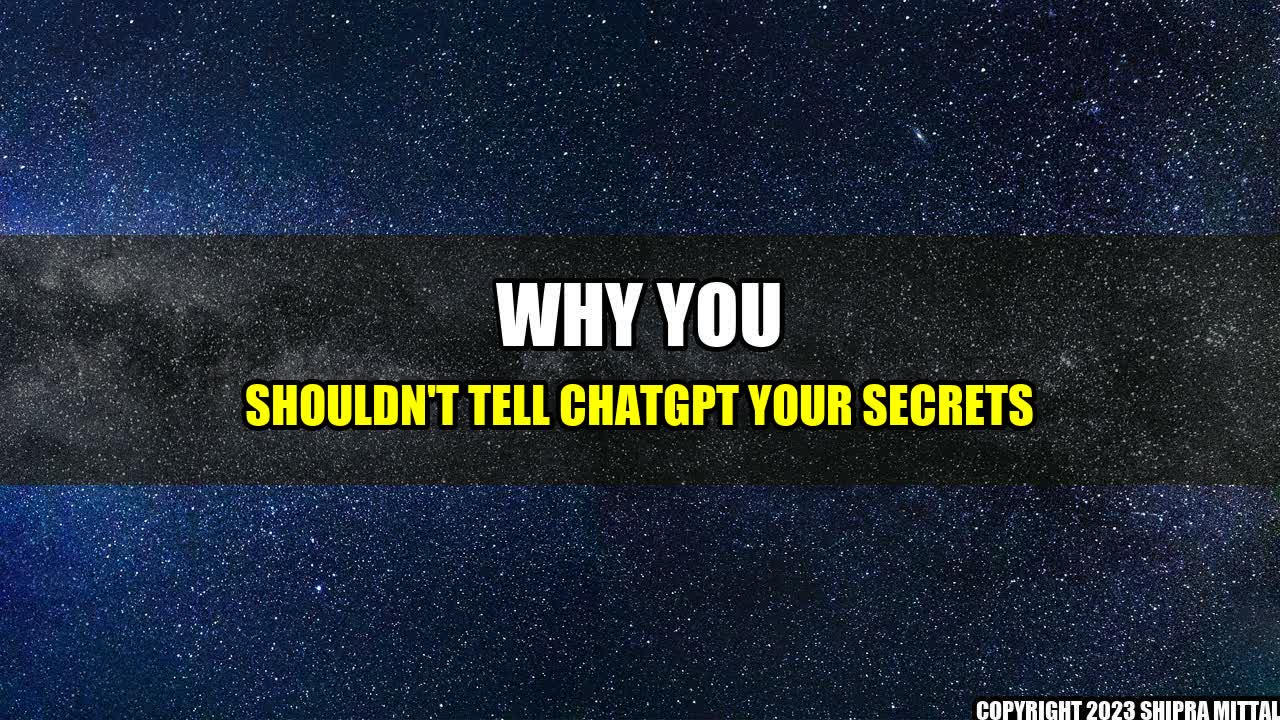
Imagine you're chatting with a new friend online, and they want to know your most intimate secrets: your fears, your desires, your insecurities. Would you tell them everything?
Probably not, right?
But what if that friend was actually ChatGPT, an artificial intelligence chatbot that claims to be your "trusted companion"? Would you be more likely to share your secrets then?
According to experts, you shouldn't be so quick to trust ChatGPT or any other chatbot with your personal information. Here's why.
Chatbots like ChatGPT are designed to collect as much data as possible about their users. This data can include your name, age, location, hobbies, interests, and more. Over time, these chatbots can build up a detailed profile of your life, which can then be sold to advertisers or other third-party companies.
For example, in 2018, the Cambridge Analytica scandal rocked Facebook when it was revealed that the political consulting firm had harvested the personal data of millions of Facebook users without their consent. This data was then used to create targeted political ads during the 2016 US presidential election.
While ChatGPT may not have the same level of reach as Facebook, it's still important to protect your personal privacy online. Giving out your secrets to a chatbot could have serious consequences down the line.
Another risk of sharing your secrets with a chatbot like ChatGPT is the potential for cybersecurity threats. If a chatbot's database is compromised by hackers, your personal information could be exposed to the entire internet.
For example, in 2013, social media site Formspring suffered a data breach that exposed the email addresses, usernames, and passwords of over 28 million users. While Formspring is not a chatbot, the incident still illustrates the danger of storing personal information online.
The bottom line is that no online service can guarantee your security. By sharing your secrets with ChatGPT, you're taking a risk that your personal information could be leaked or stolen.
Finally, there's the issue of trust and human connection. While ChatGPT may claim to be a "trusted companion", it's still just a machine. It can't offer the same level of empathy or understanding as a real human being.
In fact, some experts believe that relying too heavily on chatbots like ChatGPT could actually harm our ability to form real, meaningful connections with other people.
Instead of turning to a chatbot for comfort or advice, try reaching out to a trusted friend or family member. They may not have all the answers, but they can offer something that no machine ever could: a real, human connection.
While ChatGPT and other chatbots may seem like harmless fun, it's important to be aware of the risks associated with sharing your personal information online. By protecting your privacy, being wary of cybersecurity threats, and seeking out human connections, you can stay safe and secure in the digital world.
Akash Mittal Tech Article
Share on Twitter Share on LinkedIn